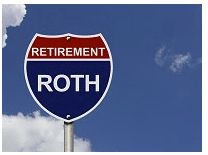Investor Identity Crisis

How much market fluctuation can you tolerate? Are you comfortable with separating money into different investment options to help fund each goal you have? Do you feel comfortable with investment advice and monitoring of your portfolio? The best way to avoid ‘investor identity crisis’ is understanding your investor profile. Your Investor Profile, or style is determined by:
- Objective Traits- Personal or social traits such as gender, age, income, family, even tax situation
- Subjective Attitudes- Part of the emotions and beliefs of the investor.
- Balancing Risk vs Reward- Tolerating greater risk to have greater reward or less risk and contentment with a reasonable return.
- Area of Focus- Types of investments (ex. Stocks, bonds) and sectors of investments (ex. Technology).
- Investment Strategies- Helps to shape the investor profile by the type of investing the investor uses (ex. ethical, growth, index)
- Valuation Methods- Helps to shape the investor profile trough the valuation method (ex. Fundamental analysis, technical analysis, quantitative analysis).
Roth IRA Quick Facts
- The Roth IRA was established by the Taxpayer Relief Act of 1997 and named after its chief legislative sponsor, Senator William Roth of Delaware. The first maximum contribution was $2000, or the lesser income amount of the individual.
- Roth IRA’s can be inherited and combined with another Roth IRA of the beneficiary. Minors can also inherit a Roth IRA. Beneficiaries are subject to minimum distribution rules, although there is no rule for distributions for the original account owner.
- Direct contributions can be withdrawn tax free at any time, and earnings may be withdrawn tax and penalty free after five years from account opening.
- Roth IRAs are limited to Single Filers earning less than $116,000 for the full contribution and couples earning less than $183,000.
- Roth IRAs are a great compliment to a 401K or a traditional IRA because they offset the tax implications of those accounts upon withdrawing. Schedule a visit with me to discuss how a Roth IRA can benefit you or be used to pass assets to your heirs tax free.
Three Generations: A Snapshot of Retirement
Each generation that is born looks at the generation before and after them and compares how they are different. Occasionally, the older generation thinks they have done everything ‘right’, and that the younger ‘doesn’t have a clue’. Guess what? The younger generation thinks the same of themselves being the one that is ‘right’ and the older ‘wrong’! Interestingly, when it comes to retirement there are some similarities, but the most obvious is differences in the age they started, contribution amounts, and financial advice. This information is provided by The TransAmerica Center for Retirement Studies most current data (2015) and is averages for these groups:
- Baby Boomers: Born 1946-1964.
- Started saving for retirement-35 years old
- Average 401K contribution- 3%
- Average amount in all retirement accounts- $127,000
- % have a written retirement strategy- 14% (‘do it yourself’ philosophy)
- Generation X: Born 1965-1978.
- Started saving for retirement- 27 years old
- Average 401K contribution- 7%
- Average amount in all retirement accounts- $70,000
- 1 Million- amount needed to retire (they have consulted professionals)
- Millennials: Born 1979-1996.
- Started saving for retirement- 22 years old
- Average 401K contribution- 8%
- 70% are already saving for retirement
- 73% are seeking outside guidance from financial professionals
Safeguard Your Financial Life

Spending Habits: Track and Analyze. The easiest way to watch your spending is to utilize your bank’s online resources that will help you categorize your spending. Eating out, shopping at retailers, and entertainment are categories in most online systems. If you use your debit card each time, your bank’s online system will automatically track it for you adding it to a category. Use this information to see what you’re really spending and if you feel that category is out of control. Another source for spending tracking is Mint.com which offers a free and a subscription version.
Income and Benefits: Make more and Maximize. Does your current job allow you to have extra money at the end of the month, or are you barely getting by? Looking for a new job or adding additional income with a second job may be necessary. Always maximize your finances by participating in your 401K at the percentage that allows you a match, and utilize insurance benefits available to you. Employer insurance is cheaper than purchasing it on your own.
Get Organized: Organize and Review. Keep your financial information in one place, preferably locked up and secured. Keep only end of year information, original policies and contracts along with updates . Review your personal spending monthly, and at a minimum do a yearly review on your investments.
Protect Yourself: Insure and Secure. Always insure yourself, your family, and your possessions. Protect your personal information by routinely changing your passwords and keeping them in a secure place. Eliminate online security issues by typing website addresses into your browser each time and not using the same password for multiple accounts.




